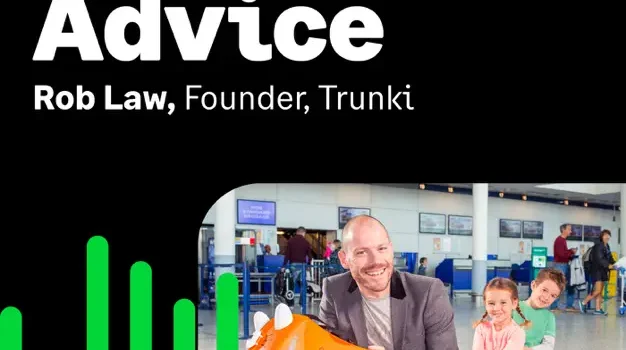
In a recent episode of the Sound Advice: Entrepreneurs Unfiltered podcast, I had the opportunity to discuss the challenges of protecting innovative products from imitation. This conversation delved into the complexities of intellectual property protection (IPR) and the resilience required to safeguard original designs in a competitive market.
The Trunki Journey and the Battle Against Copycats
The Trunki ride-on suitcase has become a beloved product for families worldwide. However, its success attracted imitators, leading to significant legal battles to protect its unique design. One notable case involved a dispute over design infringement, which escalated to the UK Supreme Court. Despite our efforts, the ruling was not in our favor, highlighting the challenges inventors face in defending their creations.
What Are the Benefits of Getting a Patent for My Idea?
During the podcast, we explored how patents can offer robust protection for your innovations. Patents safeguard the functionality and unique technical aspects of a product, providing exclusive rights to the inventor. This is particularly valuable in industries where innovation drives competition, as it helps prevent others from replicating your idea without permission.
How Do Copyrights Differ from Patents in Protecting Intellectual Property?
We also touched on the distinctions between copyrights and patents. While patents protect inventions and functional designs, copyrights cover creative works like artwork, literature, and music. Understanding these differences is crucial for entrepreneurs seeking the right type of protection for their products.
Should I Consider Trademarking My Idea If It Involves a Brand Name?
If your idea includes a unique brand name, trademarking it can help protect your brand identity. Trademarks safeguard names, logos, and slogans, ensuring your brand remains distinct in the marketplace. This is particularly important when building customer loyalty and preventing brand dilution by imitators.
Does My Idea Need a Patent? Is It Worth Having a Patent?
Not every idea requires a patent, but it’s essential to evaluate whether your invention has a unique technical or functional aspect worth protecting. While obtaining a patent can be costly and time-consuming, it provides strong legal protection and can significantly enhance the value of your business. During the podcast, we discussed how to determine if seeking a patent aligns with your business goals and product lifecycle.
Lessons Learned in Protecting Intellectual Property
Our discussion emphasized several key takeaways for entrepreneurs:
- Understand Your IP Rights: Familiarize yourself with patents, trademarks, and copyrights to determine what best suits your product.
- Be Proactive: Register your designs and trademarks early to establish legal ownership and strengthen your position.
- Seek Professional Advice: Consult with IP professionals to navigate the complexities of IP law and develop a robust protection strategy.
The Importance of Resilience
Facing legal challenges and copycat products can be daunting, but maintaining resilience is crucial. These experiences taught me the importance of perseverance and adaptability in the entrepreneurial journey. While legal battles are challenging, they offer valuable lessons and can strengthen your resolve to protect and grow your brand.
Listen to the Full Episode
For a deeper insight into these challenges and strategies, you can listen to the full episode here: Rob Law: Fighting Copycat Products.
Protecting your innovative products from imitation is a complex but essential aspect of entrepreneurship. By understanding your IP rights, being proactive, and maintaining resilience, you can better safeguard your creations and navigate the challenges of a competitive market.
Watch my interview on Youtube
Listen on:




